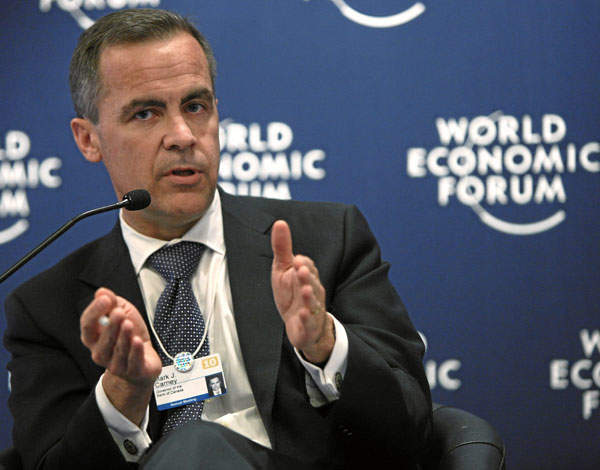
Author: by Stephen Hill

My last three blogs have examined QE in the US/UK, China and Japan, posing the question – China apart, as it has only just started – when is it going to stop? What has it done? And what has it cost?
In general, I have argued that QE should have stopped at least six months ago when Bernanke retired, and that central bankers have been behind the interest rate curve ever since, if not before.
TARP, forerunner of QE, undoubtedly saved the world’s financial system back in 2009 as a panic measure, but then QE was used to counter deflation to continue propping up the value of financial assets. Has it been growing a store of future problems?
The UK was the first to stop QE, but still continued with low interest rates. Carney of the Bank of England has at last woken up to the reality that interest rates must rise this year, not next year after the election, but then immediately says that rates will only rise in small increments thereafter: why?
Can he foresee the future course of inflation? UK and US unemployment are falling fast, so fast now, so what’s the Fed going to do? Keep repeating the mantra of low interest rates like the BoE did? It’s time, surely, to call time in this growing recovery on the QE game and its low interest rates.
It’s different for the EU, however, which used €1.2 trillion QE just once in June 2012 to save the banks, but is now fiddling around with interest rates, doing nothing to deal with its zero growth deflationary economy. It is about to do a Japan and spend 20 years going backwards.
As measured against the EU’s response to Global Crunch, the US/UK’s QE has been a huge success. Mario Draghi and the ECB, trapped as they are by the utterly ridiculous single currency and the strictures of the Bundesbank have nowhere to go but down. The EU really is now a dead man walking, walking into oblivion: the quicker the single currency explodes the better.
It is axiomatic that printing money, QE, leads to monetary inflation. It is also obvious that governments have manipulated the inflation rate for the last five years: we all know this as we watch prices rise every month by far more than the official rate.
The UK measure is CPI, an EU measure that leaves out the cost of housing: now house prices are rising out of sight, but this is actually an accurate index of how money has lost value during QE rather than any gain in value. It’s the same in the US, where the official rate is based on consumer spending but excludes food and energy: it is at 2 per cent now, but actual inflation in producer prices is at 3.6 per cent. And everyone knows that as the economy recovers, so wage push gets going, which is about where we are now.
Now we learn that the black art of hedonics is being applied to the inflation indices – to knock them down, of course. Hedonics? If this year’s product goes up 3 per cent in price but is 4 per cent better with extra bells and whistles, then its hedonic factor is minus 1. As the standard of living rises, then the prices must go up too, but this sort of black-art mathematics is open to all sorts of abuses and the capricious whims and fancies of leery bureaucrats.
On these ‘adjusted’ inflation figures the official interest rate should be at least 2 per cent and rising in order to head off increasing inflation – take note Carney and Yellen. Their predicament, however, has been building for some time: the world has not seen ‘correct’ interest rates since 2005, when the Greenspan disease of low rates really got going, either in the upturn then or the recent downturn.
When rates have to rise, then the cost of QE will come home to roost, as interest payments for government debt as a percentage of GDP and the tax base rise significantly. Then higher taxes and mortgages will begin to bite, as the bill for QE has to be paid. Right now it’s in the post, but about to be delivered. By then, Bernanke and co will be over the hill and far away, claiming to have saved the world – and living off their index-linked pensions. Job done.
The Fed and the BoE now have a tough job to do during this recovery, namely (for once) take the punch bowl away in time and not get behind the curve and lose control of inflation. They should be thinking of this now, not in some forward guidance in 2016, as Yellen proclaims. And Carney cannot hide behind the Fed, as the UK is at least a year ahead of the US’s recovery.
Somewhere in between today’s low rates and the higher rates to come, the central bankers will also have to sell all those bonds acquired by QE as offering higher rates, or sit on them until redemption. As for those borrowing under the UK’s Help-to-Go-Broke scheme, don’t, unless you have a ten-year fixed loan, or rich parents still talking to you.







